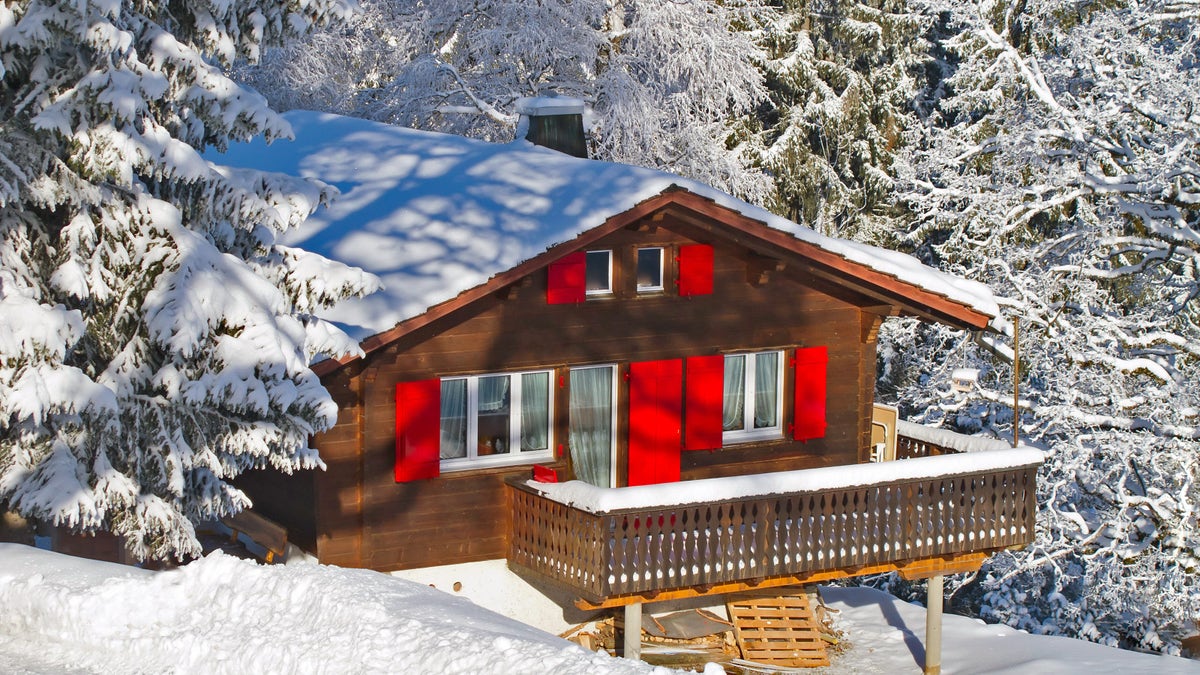
winter-getaway
With apologies to "Game of Thrones" fans, winter isn't just coming -- it's finally arrived! That is, if the massive snowstorm that swept across much of the U.S. this weekend didn't already give you a heads up on this fact.
Purchasing a mountain retreat that can serve as a base for skiing or snowboarding trips may be the real estate equivalent of that black diamond run. It offers plenty of rewards -- but also some big-time challenges and more than a few risks
We spoke to some of the best folks in the business on the subject, so make sure you think about the following things before you push off the edge. Ready? Let's shred the gnar!
What's your budget?
It seems obvious, but this will determine whether you're going for one of the shiny new winter resort developments or a fixer-upper. And, yes, it will also determine just how close you'll get to the slopes.
"Obviously, as with all real estate, location is key. If you can't buy on the mountain, you try to buy something that has reasonable proximity," says Bruce Wright, senior vice president at SB Architect, who designs ski homes, and owns one he renovated in Lake Tahoe.
Ask yourself if the home truly fits your downtime needs: Will you have large dinner crowds who need a large kitchen and dining area? Is the floor plan flexible enough for multiple guests? Is a hot tub or sauna a must-have?
On that last item, Wright has a definite opinion. "Saunas are not too expensive to install," he says. "It's a fun little amenity that you don't typically have" back home. So why not take the plunge?
What do you get for your money?
Say you spring for a pricey mountain place. Even if the home itself is swanky, you need to look beyond the front door and find out what else is being offered along with that key to your snowy kingdom.
If you've paid top dollar for true slope-side, ski-in, ski-out living, the last thing you want is to bother with maintenance and upkeep, says Ron Barnes, a senior partner at Mountainside Partners, which developed Mountainside at Northstar in Truckee, CA, where newly built mid-mountain homes start at $1.75 million.
He notes that many newer communities come with standard amenities such as a clubhouse, pool, and fitness center. Some even have concierge service. You want mountain rustic? Go rustic. You want mountain luxury? Search it out, and make sure you're getting your money's worth.
Do you know your developer?
If not, get to know him, pronto. "What's their staying power and long-term vision?" Barnes asks. "Do they have a track record of coming back regularly and continue to improve [their developments]? That's always a great sign of the level of commitment."
Have you read the fine print?
Before you sink your money into such a long-term investment, find out the homeowners association rules. Are you allowed to rent out your place when you're not using it? Are you guarded against major structural problems involving, say, how the roof handles the snow load? Yeah, we know it's a vacation home and we understand that you're eager to hit the slopes and start Zorbing already. But you should apply the same level of due diligence you would when buying a primary residence.
What happens when you're not there?
New or old, vacation homes need maintenance when you're not around. If you buy a place that's not part of a development, that's where a property manager comes in.
You can choose a big firm or find a single person to handle your empty home. (You can ask your Realtor for recommendations.) Either way, you'll be provided with a menu of services -- for a monthly fee. The more maintenance, the higher the fees (duh).
But the price can be well worth it compared to a burst pipe that goes unnoticed for days, weeks, or months.
"The cost of having a property manager is relatively tiny compared to the cost of the house," says Jill Shore, a broker for Douglas Elliman in Aspen, CO. And what that peace of mind buys you is priceless.
Will this home work for all four seasons?
Maybe you're one of those rare snow bunnies who wants to vacay only in the most frigid conditions. But, if you have a second home, it would be nice to use it year-round, right?
If a four-season retreat is your goal, pick carefully.
"Our summer season is as big or bigger than our winter season," says Joshua Saslove of Douglas Elliman's Aspen and Snowmass office. He also notes the nearby attractions, from hiking and biking to music festivals, Theater Aspen, the Aspen Institute, the Aspen ballet, restaurants, and concerts.
Think of the old winter resort mantra: "I came for the winter; I stayed for the summer." Sounds pretty good, right?